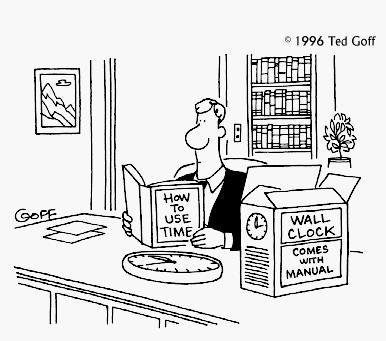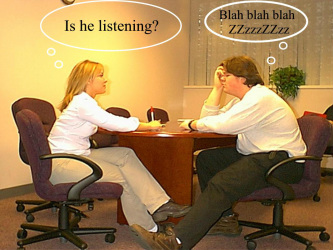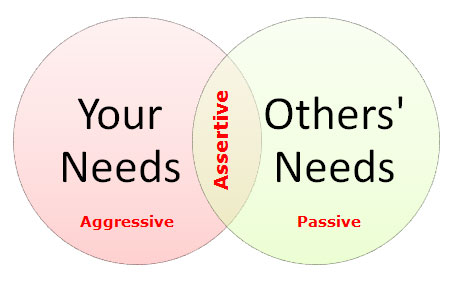In this workshop you will learn how to create an accomplishments portfolio, what materials are needed, what to include and exclude, and how to use it to its best advantage.
|
An important part of the interview process is being able to present yourself in a positive light and set yourself apart from the others interviewing for the same position. One way to do that is by having an accomplishments portfolio where you concretely present to the interviewer what you have done over your career.
In this workshop you will learn how to create an accomplishments portfolio, what materials are needed, what to include and exclude, and how to use it to its best advantage.
0 Comments
During the hiring process you get several chances to make a good impression; beside the interview and background check, knowing who to use as a reference can help the employer confirm that you are the right person they are choosing for the job.
The last thing you want is for a potential employer to push delete after having looked at your resume for less than 30 seconds.
In this workshop you will become aware of what your resume is, how employers look at it, what to avoid including in your resume, and how to craft one that presents your skills, abilities and accomplishments in a way to pique an employers' interest. Due to the amount of information presented, this workshop will begin promptly at 9:30 a.m. This workshop is a loosely moderated, unstructured open floor setting for members to talk in a supportive and protective environment about their current job search.
Typical topics from past forums have included interview situations and experiences, resume questions, how to handle emotions with loved ones at home, and just about whatever the assembled group felt like talking about at the time. It is one of those 'Whatever is said in the room stays in the room.' sessions so you can feel confident and secure in sharing what's going on with you. A cover letter in today's employment environment should not be a rehash of your resume. This module will show you how to create a letter that drives the reader to your custom resume, that in turn, motivates the reader to invite you to an interview.
Ever wonder why so many companies choose internal job candidates over external ones? Or why so many outside hires leave a company shortly after starting their new jobs? Unfortunately, too few job applicants take the time to get a feel for the target company’s work atmosphere or culture during the interview process which in turn can lead to a ‘bad fit’ and a horrible job experience.
If you don't line up well with the company’s way of thinking, doing business and your supervisors expectational values, it will be very difficult to develop successful working relationships with those you work with and those around you, whether or not, you can excel in the job. You can also learn a lot from doing some research on the company and finding out how management at the company treats the employees who leave or are asked to leave?
Many companies are starting to consciously look at cultural fit during the hiring process. They are doing this because the risk of a potential mismatch between you and the values of the company can be quite expensive for all parties involved if something doesn’t work out. Although you may look like the perfect fit on your resume with all the right skills and experience the company is looking for, if you as a candidate do not have the required behavioral and personality traits to fit in with the team and the company’s personality, the employment marriage will surely end in a quickie divorce. What is Cultural Fit? According to Dictionary.com the word “culture” is defined as “The total range of activities and ideas of a group of people with shared traditions which are transmitted and reinforced by members of the group.” Culture is also further defined in the business literature as the workplace environment which is made up of the values, beliefs, underlying assumptions, attitudes, and behaviors shared by senior management of the company. It is also the behavior that results when a group of employees arrive at a set of generally unspoken and unwritten rules for working together. “Fit”, on the other hand, is defined by Dictionary.com as “adapted or suited” for the subject at hand. “Job fit” also refers to the degree to which the candidate’s skills and experience are relevant to the job and the degree to which the potential hire finds the position’s activities and responsibilities rewarding and fulfilling. In other words, you are considered a cultural fit if you can, in addition to performing your job well, contribute faster to the company than another potential candidate for the same position. Clues to a company’s culture Some companies are starting to provide information about themselves and their culture in their position postings. The hope is that applicants will self-screen out when they see keywords that don't support their job values or lifestyles. For example, someone looking for a 40-hour week will likely take a pass if the posting says the position indicates longer than usual hours, while a candidate who enjoys a team environment may pass over a position that requires telecommuting from home for example. What do interviewers look for to see if you are a good cultural fit? During the interview process, interviewers may consciously, but more likely unconsciously, look for your: Work style
In other words will you take your job seriously and be willing to make the commitment in the department to be a success with your new company. Schedule preferences
Personality characteristics Personality is hard to quantify in an interview. However, interviewers may be looking to see if you:
What’s the best way to show you are a good cultural fit?
What can you do? Start by checking ‘references’ on as many people you can with whom you interviewed with. If you asked for their business cards during the interview you will have enough information to get started.
Too much to do and not enough time? Have trouble saying "No" to others who ask for your help? Too busy concentrating on being busy rather than concentrating on getting results? Learn how to gain control of your life and free-up the 80% of the time you are spending doing 20% of the unimportant tasks.
It has been said that some of the best conversationalist's are good listeners. If we all have the same ears and they work the same way, how is it we don't all hear the same thing? This workshop will teach you the quickest way to gain a person's trust and show them you are listening.
Learn how to communicate your desires, needs and opinions in a non-aggressive, clear and honest way while remaining respectful of others.
Self-confidence is extremely important in almost every aspect of our lives, especially when we are looking for a new position; yet so many people struggle to find it. In this workshop you will come to understand the philosophy of self-confidence and how to instill a "Yes I can!" attitude to gaining it.
|
AuthorChuck Castagnolo is the Founder and Executive Director of Bridges to Jobs Archives
December 2014
Categories |





 RSS Feed
RSS Feed
